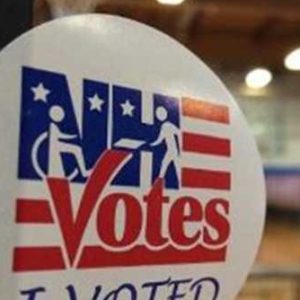A new Associated Press-NORC Center for Public Affairs Research poll found Americans largely divided on many of the new election rules in the “For The People” Act. Proposals like a two-week early voting mandate and same-day voter registration in the Democrats’ legislation have the support of about half of those surveyed.
There is one notable exception: “Nearly three-quarters of all Americans — including majorities of both parties — said they support laws requiring voters to present photo identification,” the AP reports.
Requiring voter ID is supported by 91 percent of Republicans, but it’s also supported by 72 percent of independents and 56 percent of Democrats.
Americans hate the idea of letting people vote without showing an ID, and H.R. 1 mandates it. While it doesn’t ban states from asking for an ID, it does ban states from requiring one.
This puts New Hampshire Democrats in a problematic position. Most Granite Staters don’t realize it, but people can both register to vote and cast a ballot — all without ever showing ID — in New Hampshire right now. Statehouse Republicans have proposed legislation to close this loophole, require voter ID, and address other ballot security concerns. Democrats are actively opposing that effort.
As a result, between H.R.1 and the state legislation, it’s possible virtually every Democratic legislator — state and federal — will have voted against voter ID requirements. Reps. Annie Kuster and Chris Pappas already have. Twice.
Democrats point out there have been few cases of illegal voting prosecuted in the Granite State, and they say fears of massive voter fraud are overblown. The data back up their claims.
Republicans say H.R. 1 is based on an unfounded belief Americans face obstacles to voting, and that there’s no problem with ballot access. The data support the GOP’s argument, too. New Hampshire, for example, hit modern turnout records in the past three election cycles in a row.
In other words, both the H.R. 1 legislation and GOP efforts to tighten ballot security are largely solutions in search of a problem, based on the data. The difference is politics. While the AP-NORC poll shows most of the H.R. 1 provisions have majority support, they’re “soft” majorities just above 50 percent. Republicans will likely not pay a price for opposing policies like no-excuse absentee voting or requiring states to mail a ballot to the address of every registered voter.
The same is true on the issue of voter fraud. According to a 2020 UNH Survey Center poll, Granite Staters are evenly split on whether there’s a significant election security problem.
Democrats, on the other hand, are advocating a no-ID voting mandate Americans — and Granite Staters — seem to actually care about. From Sen. Maggie Hassan to local legislative races, it’s likely an issue voters will hear about in 2022.





